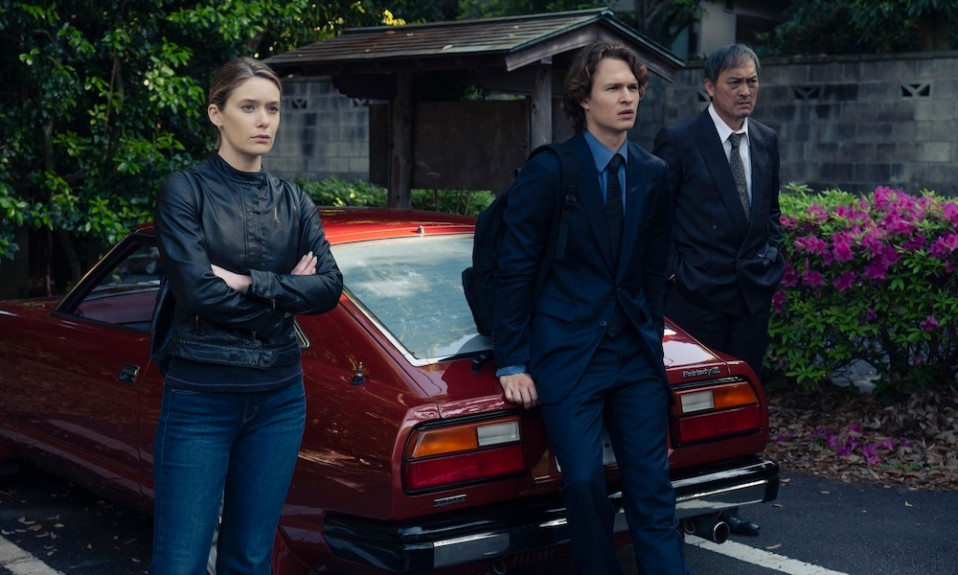Miranda July’s latest offering at LFF 2020 is an absurd crime caper.
One of the most quoted lines in all of literature is from the beginning of Anna Karenina: “Happy families are all alike; every unhappy family is unhappy in its own way.” This has, for hundreds of years, surmised our feelings towards our families. We view others with envy, the seemingly perfect families, nuclear and close, while we resent our own uniquely unhappy one. For Old Dolio (Evan Rachel Wood), the oddball protagonist of Miranda July’s Kajillionaire, that unhappiness is incredibly unique.
Old Dolio, named after a man who won the lottery in the hopes she might end up in his will, is from a family of scammers; small-time criminals who are happy to skate by, or so they say. Her father, Robert (Richard Jenkins), prefers this half-life, one in which the rent is always due, and turning fast tricks is both an adrenaline rush and a necessity. “Most people want to be kajillionaires,” he says, but it doesn’t interest him. While her mother, Theresa (Debra Winger) is equally baked into this life on the fringes but, maybe more so than her father, shows little affection for Old Dolio.

It’s because of this life that Old Dolio has become more of a worker than a daughter. She works the scams as she’s asked to; stealing from the post office, conning a wealthy married couple, and then attempting to do the same to their daughter. All to earn a little extra cash, never too much, $20 here, $50 there. This family isn’t interested in robbing banks, in splitting millions of dollars three ways, but rather playing against the system as a means to survive.
That is until Melanie (Gina Rodriquez) shows up, a chatty and beautiful woman who exposes the family’s dysfunctionality, while they’re running a job. Melanie, intrigued by the strangeness of Robert and Theresa is pulled into the thrill and ease of these jobs and begins suggesting cons of her own. The first is to scam the old desperate customers she serves at work, to convince them to give her that antiques and to sell them on at a profit; the sad and lonely praying on the sad and desperate. Then, as the money does start rolling in that value system, about living on very little, is tested.
It’s from here that each new step exposes, to Old Dolio, that her perception of family is misguided. She watches her mother warm to Melanie, watches her become crucial in the family’s newest scams, and sees what her life could be like if her parents acted as if they loved her. In one scene, she even watches as her parents play happy families as part of a con, and she sees that they do know how to be kind, they just choose not to be.
This yearning, for connection and to be seen, is Miranda July’s favourite territory. In her short stories, people, often lost young women, explore their tangible and fragile connections with others, and her novel sees a lonely woman find love in the strangest of places. Her previous films, Me and You and Everyone We Know (2005) and The Future (2011), showed a kooky side, one that saw talking cats narrate tales of existential crisis and awkward salespeople creating intimate connections with customers. She is an artist who likes to explore the uncomfortable, the strange, and the confusing and Kajillionaire is an excellent addition to July’s Theatre of the Lonely.
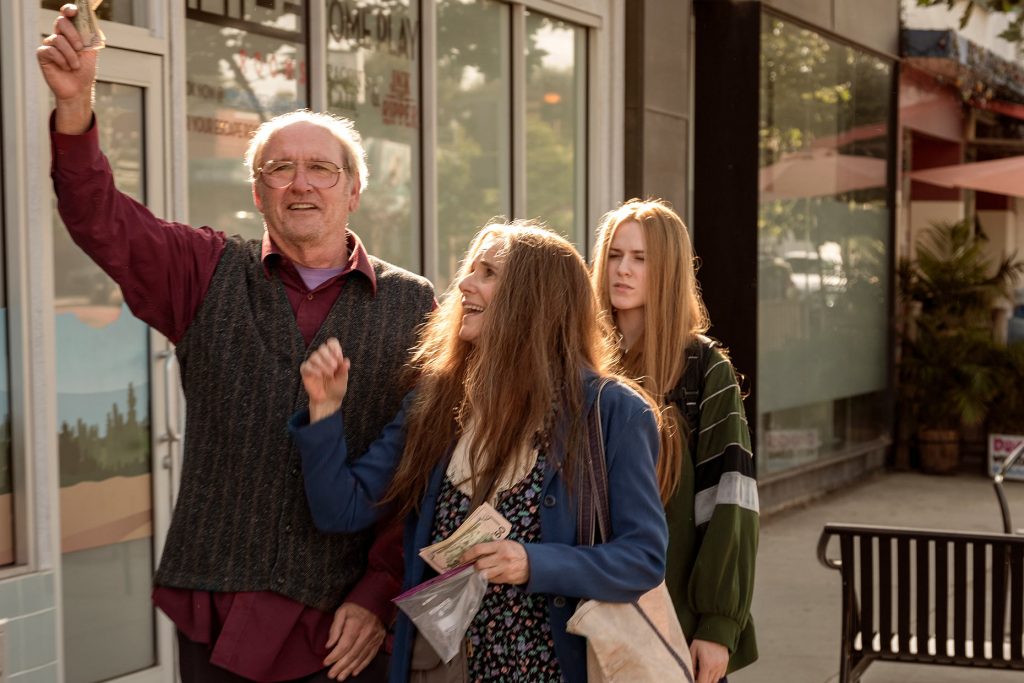
Old Dolio is lonely. She has never been called affectionate nicknames, never been hugged, or caressed yet she is “addicted” to the neglect of her parents. She doesn’t know what an alternative life would look like until Melanie tries to show her. This queer connection at the centre of this small world is Old Dolio’s driving force to look for something different, to seek the love she deserves.
In July’s deft and absurd hands, Kajillionaire is enrapturing, strange, and overwhelmingly joyful to watch. It feels distinctly of its own creation and each left-field acting choice, visual, or plot point only furthers to strengthen the overall whacky experience. It is, at times, heart-breaking then romantic, then silly, then serious, then funny, and manages to give each feeling, each beat, just as much credibility. As you watch pink suds droop down from cracks in the ceiling of the disused office where the family lives or the way they crouch behind low walls to avoid the landlord, if you examine the strange outfits Old Dolio dons, or watch her try to army crawl along the floor as a form of apology, you can’t help but feel that Melanie sums it up best; “Most happiness comes from dumb things.”
Kajillionaire is available to rent on BFI Player as part of the London Film Festival from today.
It is released in cinemas nationwide from Friday 9th October
Also Read: How Film Changed Me: On Sofia Coppola


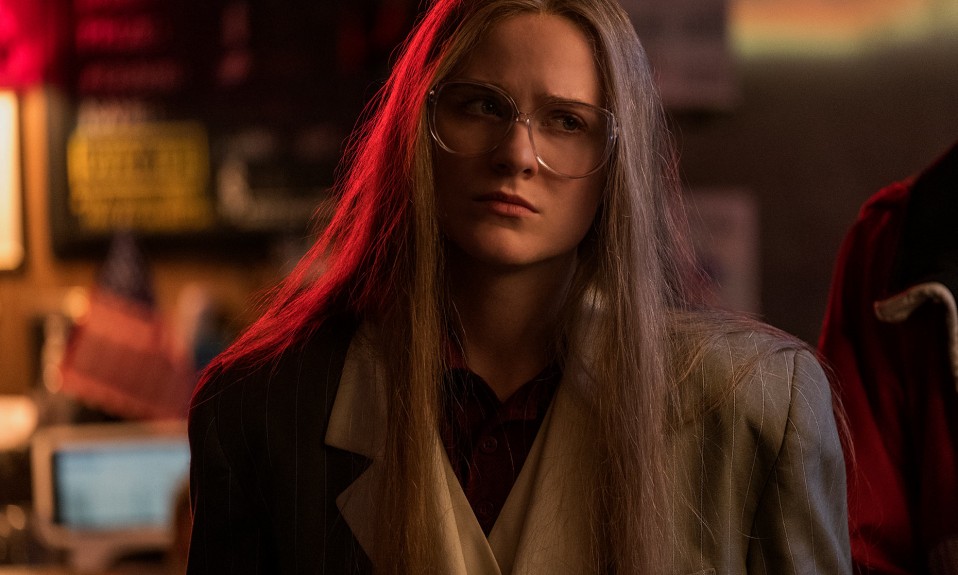
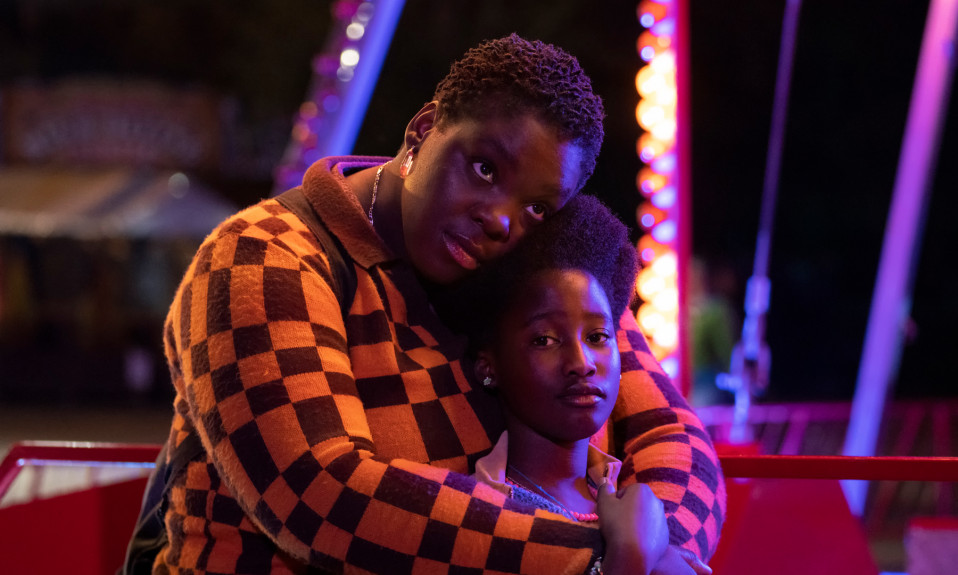
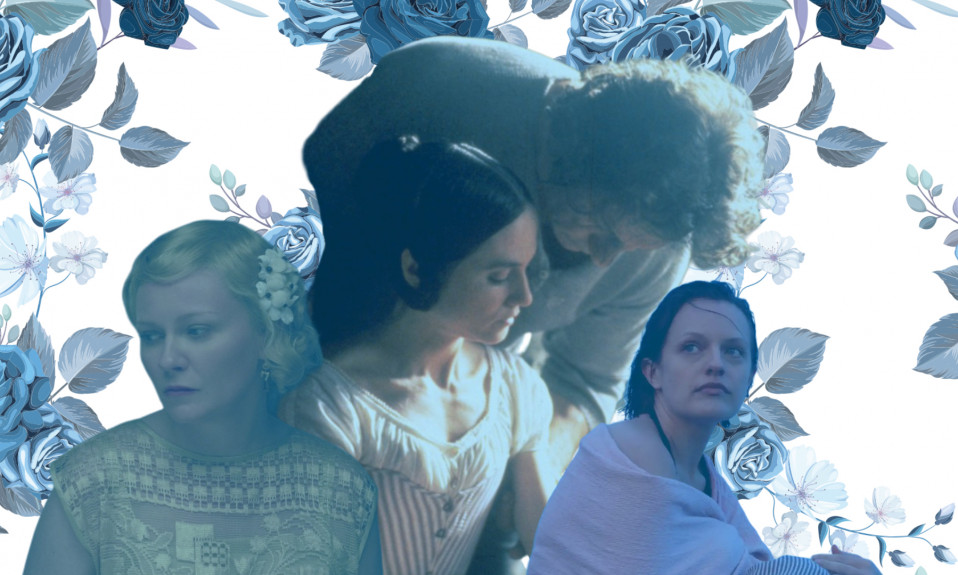
![Online Film Festivals [Source Freepik and Wikipedia]](https://bigpicturefilmclub.com/wp-content/uploads/2021/01/online-film-festivals-Source-Freepik-and-Wikipedia-958x575.jpeg)
